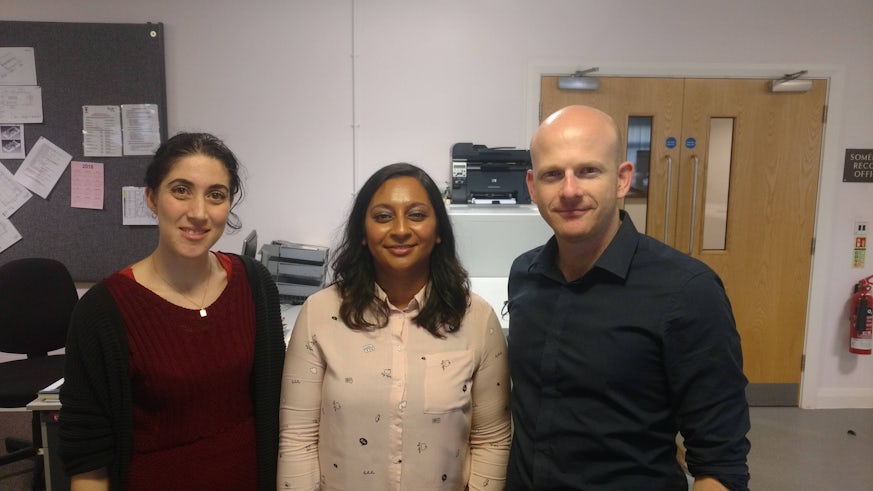Latest science reveals new secrets of multi-cultural Iron Age communities and their final rites
10 December 2018

New archaeological research challenges perceptions of Iron Age mortuary ritual
Turning existing thinking on its head, archaeological scientist Dr Richard Madgwick has found that excarnation – or exposing the body to the elements through so-called sky burial - was rarely practised in SW England. This practice had long been considered the majority rite during this period.
Employing a range of cutting-edge bioarchaeological techniques, the Somerset study also revealed a more diverse community than anticipated, including a substantial proportion of people raised away from Somerset, some as far afield as continental Europe.
The research project will feature in the latest Digging for Britain television series presented by Cardiff alumna Professor Alice Roberts in the run up to Christmas.
The study, undertaken at Cardiff University’s bioarchaeology laboratory, looked at the remains of 130 people from five Iron Age sites held in the Somerset County Council, North Somerset Council and Glastonbury Antiquarian Society collections cared for and managed by the South West Heritage Trust across the Bristol Channel in Taunton.
Using a powerful combination of macroscopic, microscopic and molecular techniques, the analysis found that the most common funerary rite of the period was in fact a complex mix of primary burial, exhumation and the selective retrieval of remains. Although macabre to modern western society, it seems graves were revisited once soft tissue had degraded, with bones extracted and circulated or curated before being deposited elsewhere.
Through isotope analysis of surviving human teeth, the team established the origins of 40 individuals. The research showed that the majority (31) had been raised in the locality. Four of the nine non-natives appear to have come from continental Europe, three likely from Iberia and another probably from Brittany. However, origins were not important in funerary practice and people raised locally or from far afield were treated in the same way. The same was true for evidence of trauma on the skeleton. Whether people met a violent end or apparently died naturally made no difference to their mortuary treatment.
Conducting the research to understand more about how Iron Age people in South West England treated their dead, archaeological scientist Dr Richard Madgwick said:
“Contrary to existing thinking, this research gives a very different picture of the structure of Iron Age communities and how people in this part of Britain treated their dead. Society was more multi-cultural than expected and whether native or outsider, friend or foe, this study shows your origins had no bearing on your funerary treatment. Rather than being exposed to the elements through excarnation, the majority of people were in fact buried, only to be revisited and disturbed months or more likely years later.”
Though macabre, the detail is fascinating: “In our study of five sites, only Glastonbury Lake Village indicates the exposure of remains, with stronger evidence instead pointing to the time-intensive curation of trophy skulls, from defleshing and curating to polishing and final display of the human skulls.”
Dr Richard Madgwick is a specialist in the study of bones and employs macroscopic, microscopic and molecular methods to reconstruct movement, diet and patterns of treatment in the past.
The new research was part-funded through the Cardiff Undergraduate Research Opportunities Programme (CUROP), enabling current undergraduate students to gain skills and experience in cutting-edge research.
Among those participating was third year BSc Archaeology undergraduate Faye Shearman.
“The project has been a great experience. It has introduced me to the mystery of British Iron Age burial practices and the myriad techniques we can use to study them,” said Faye. “As a result, the project has compelled me to continue my research into Iron Age burial practices for my final year dissertation.”
The research project features in the Digging for Britain Iron Age special on BBC4 (Wednesday 19 December at 9pm and thereafter on IPlayer).
